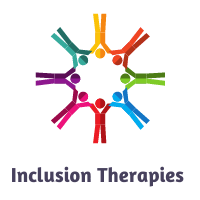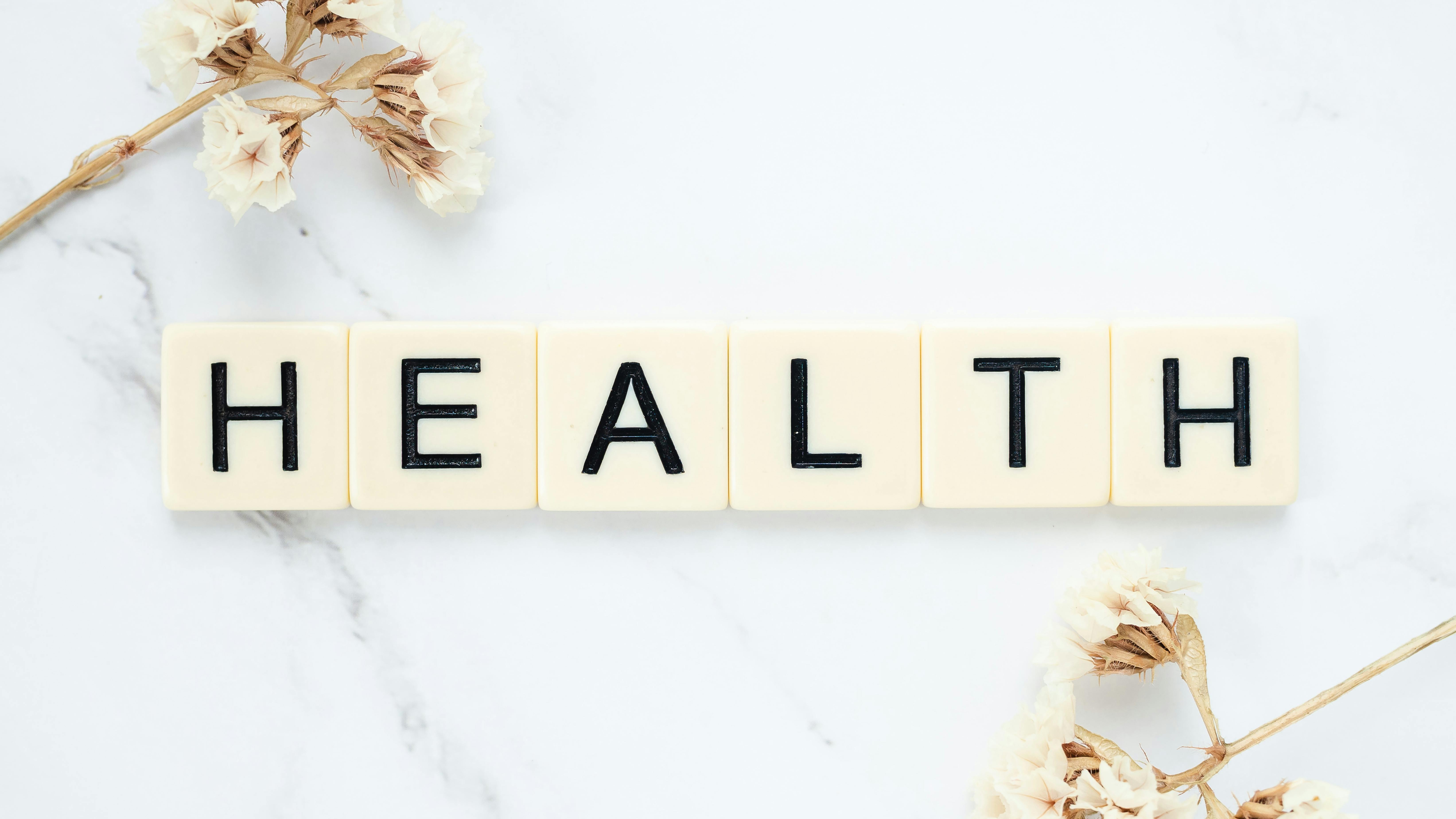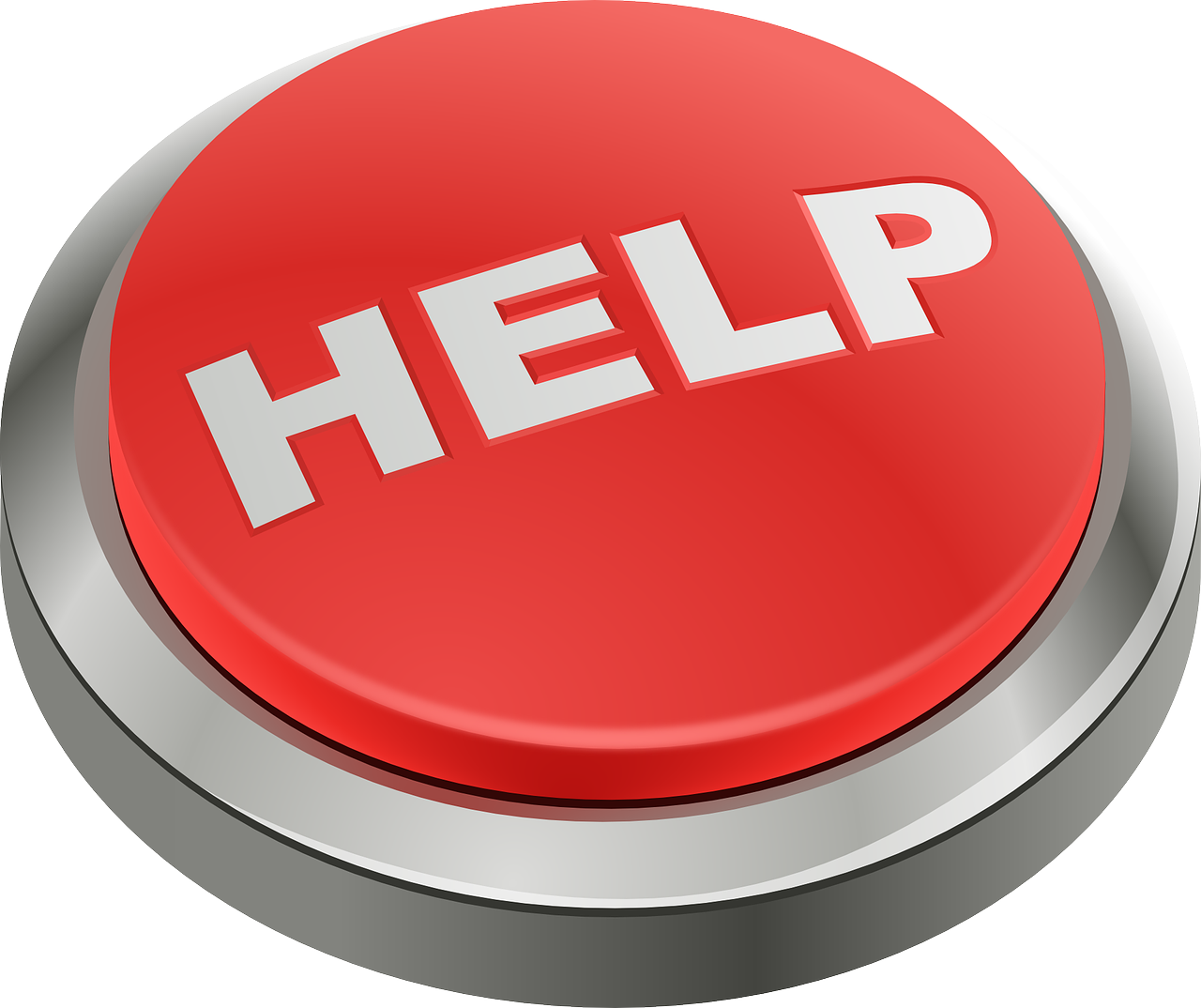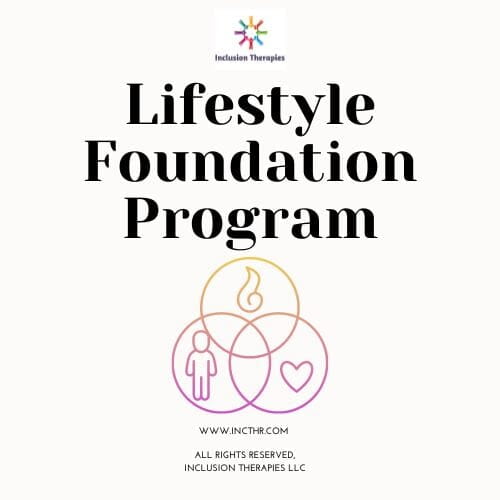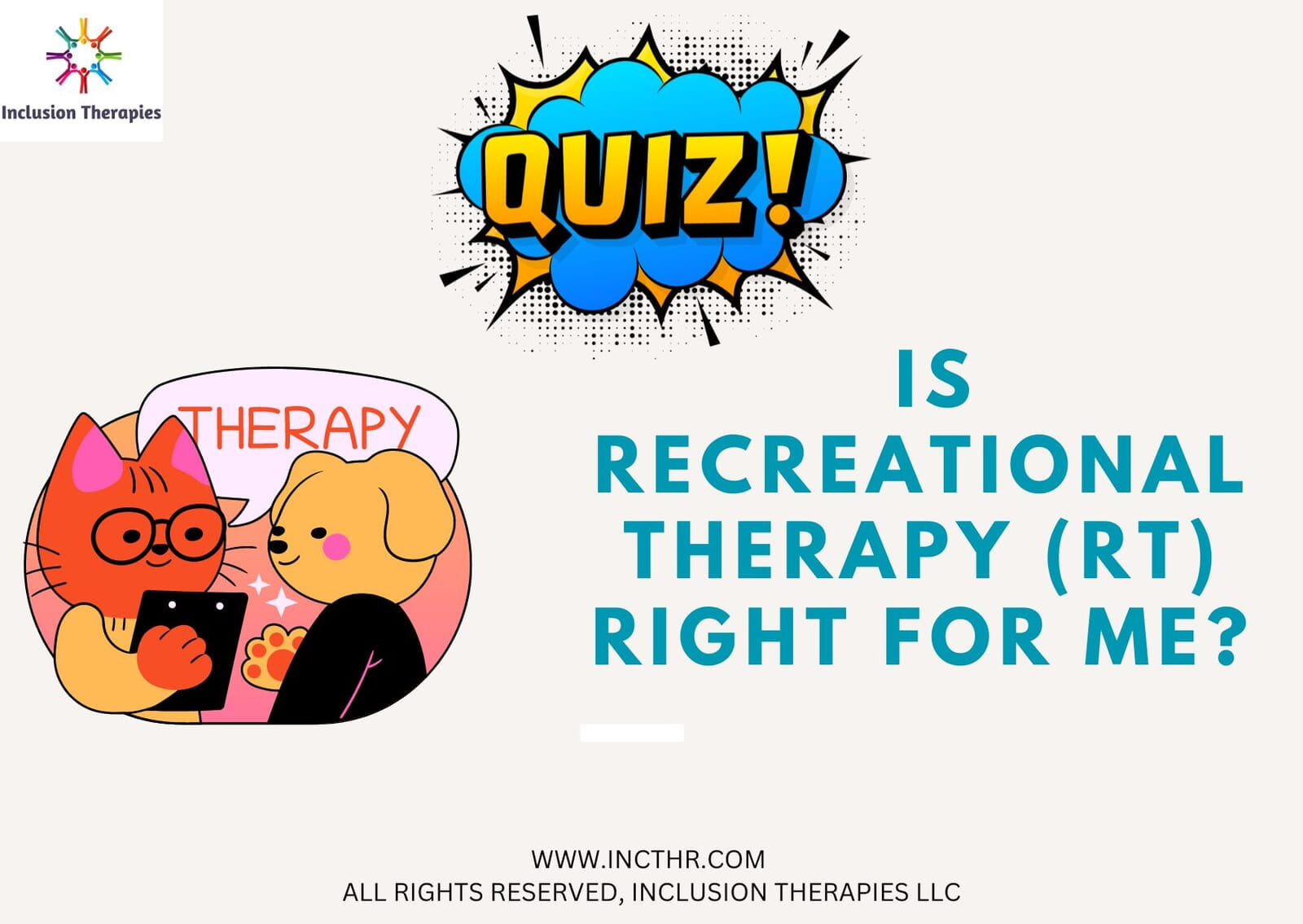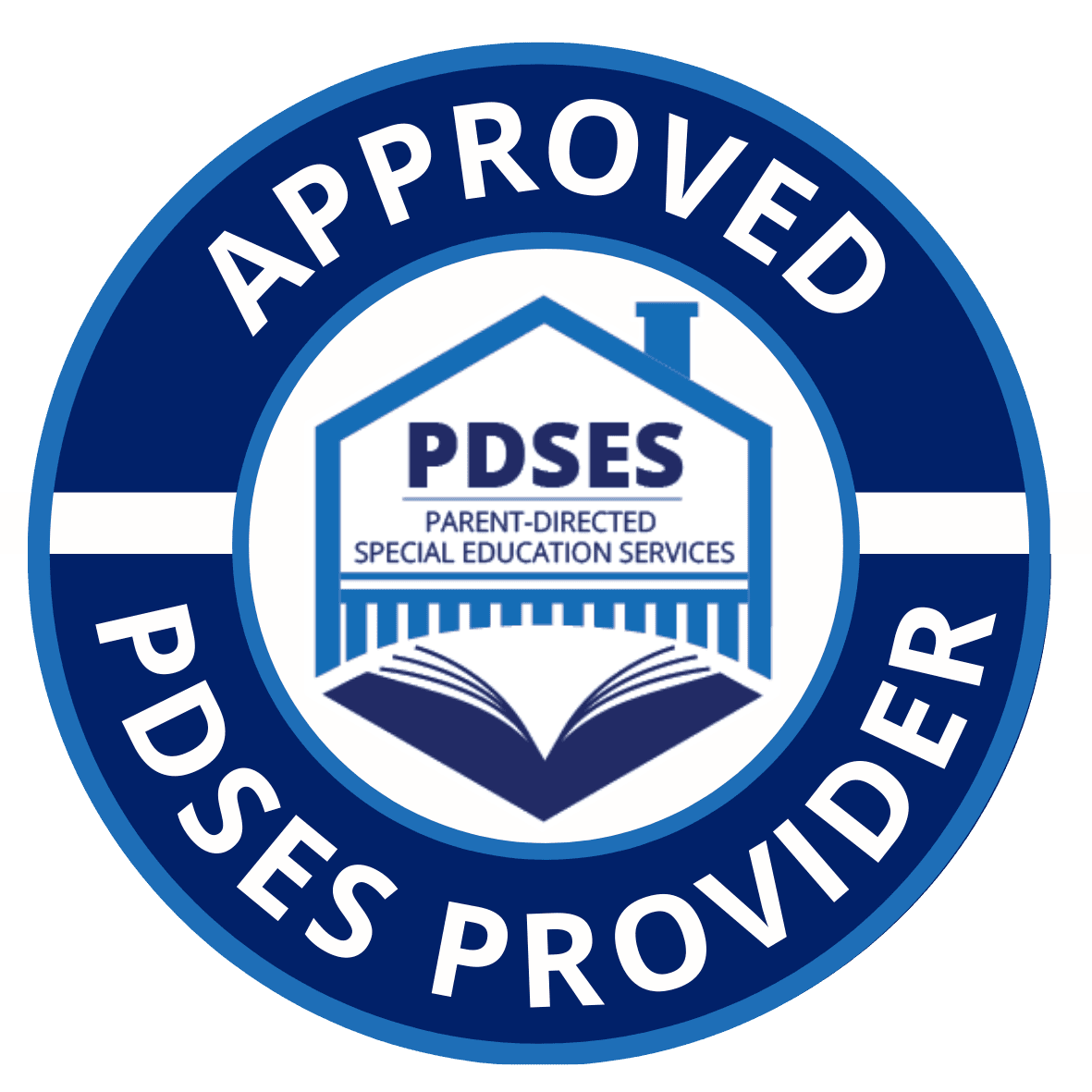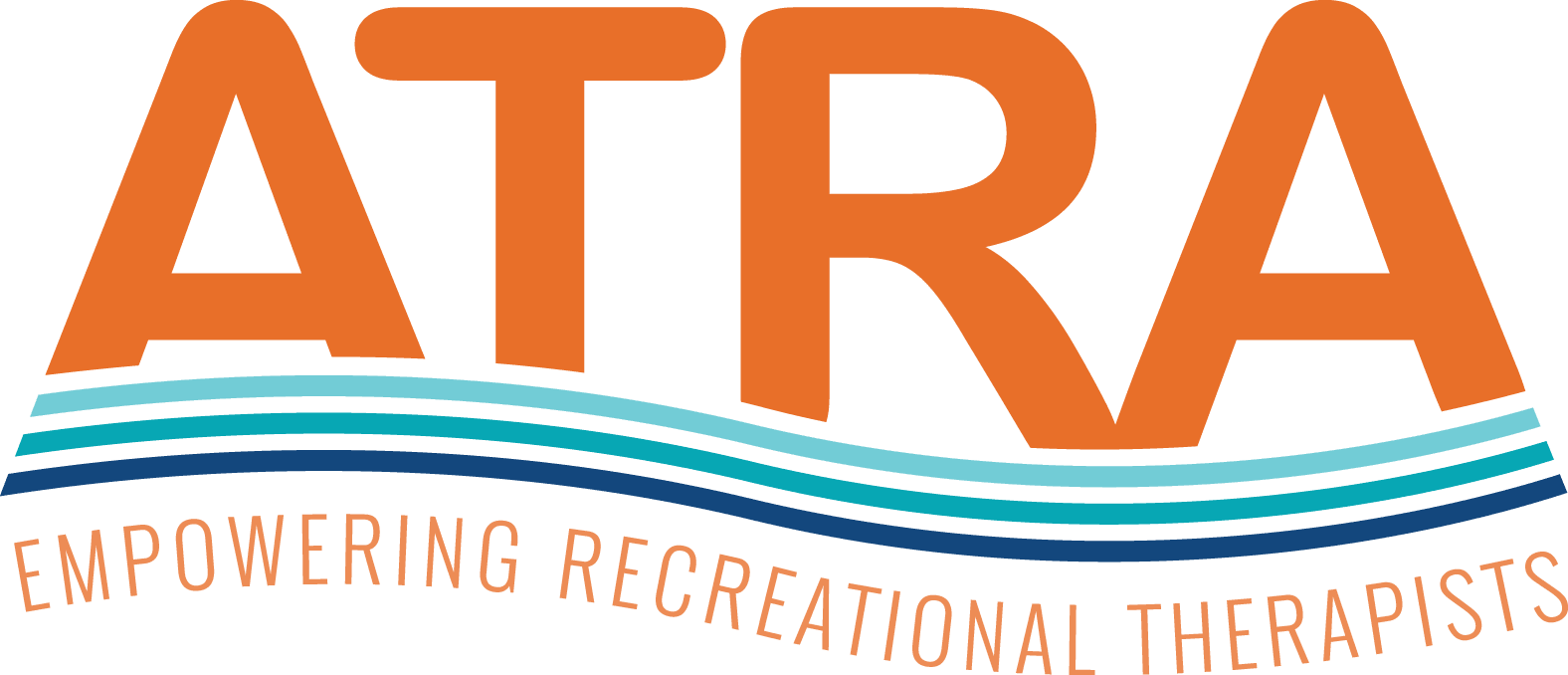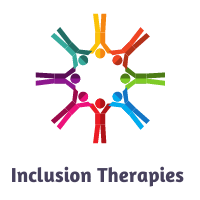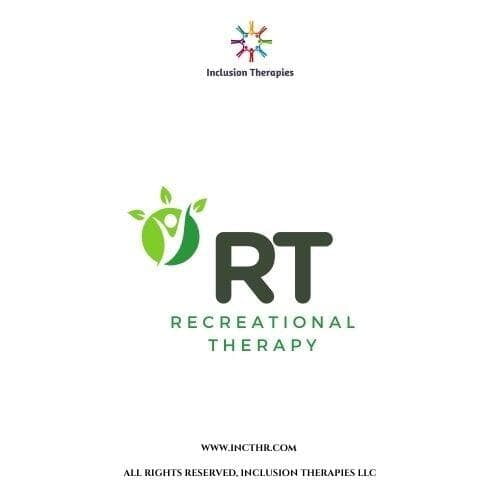
Recreational Therapy (RT)
Treatment Goal
To Start Recreational Therapy:
1. Sign up for membership (which includes automatic enrollment in the Lifestyle Foundation Program).
GOAL:
Your Optimal Emotional, Physical and Social Health
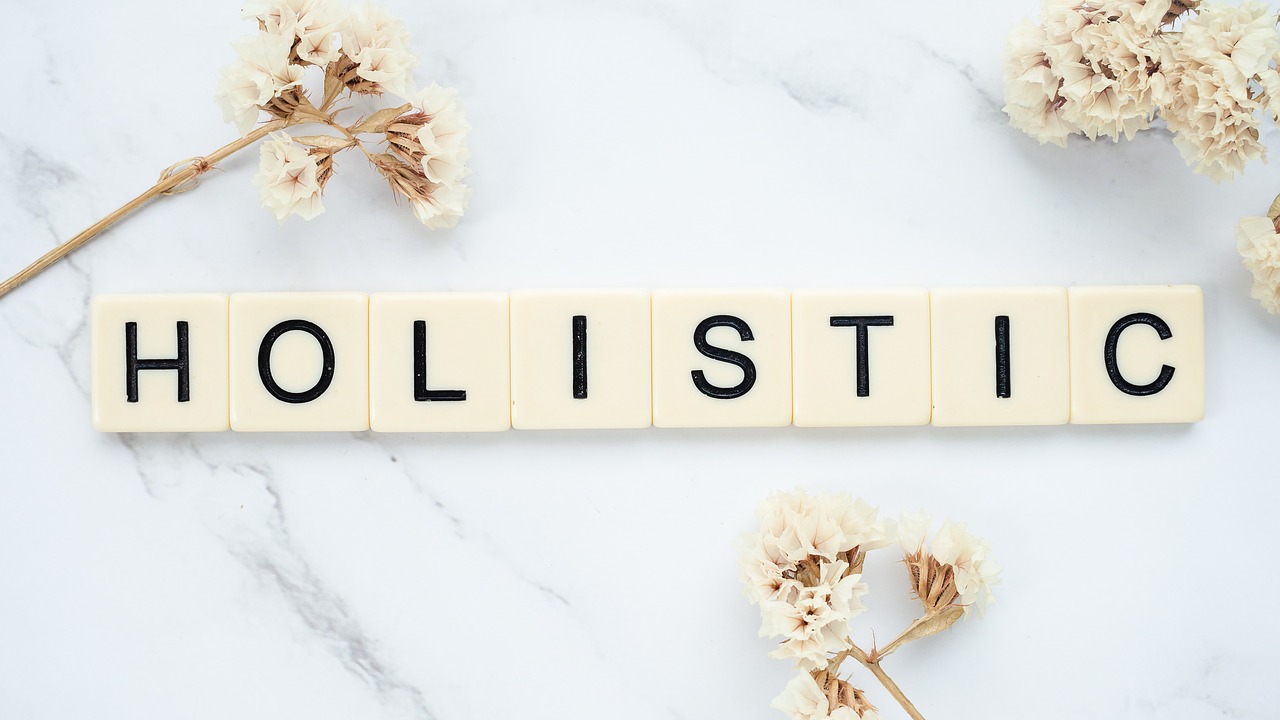
Holistic is "relating to or concerned with complete systems rather than with individual parts[.] Holistic medicine attempts to treat both the mind and the body."
- Encyclopædia Britannica, Inc.
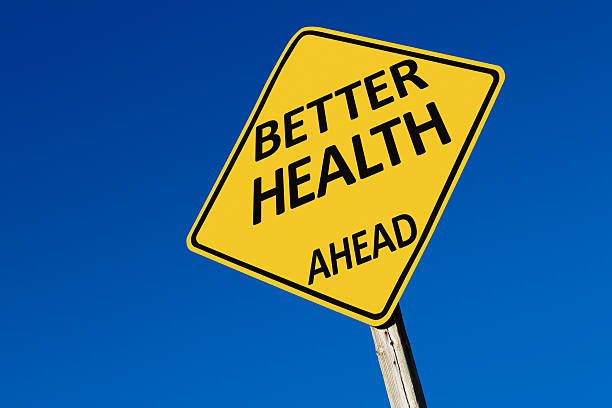
"Optimal health is a holistic focus with the aim of attaining the best possible health outcomes by promoting healthier behaviors and not merely the absence of disease[.]"
- U.S. Department of Health and Human Services
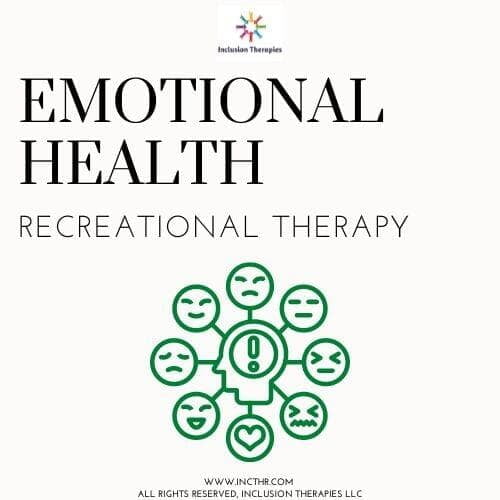
"Emotional wellness is the ability to successfully handle life’s stresses and adapt to change and difficult times."
- National Institutes of Health, Your Healthiest Self, Emotional Wellness Toolkit
"Mental health refers to your ability to process information.
Emotional health is how you express feelings based on the information you have processed."
"[E]motional well-being consists of an affective component, concentrating on positive emotions such as feelings of happiness, and a cognitive component, concentrating on evaluations of life such as life satisfaction."
- Lamers SM, Bolier L, Westerhof GJ, Smit F, Bohlmeijer ET. The impact of emotional well-being on long-term recovery and survival in physical illness: a meta-analysis. J Behav Med. 2012 Oct;35(5):538-47. doi: 10.1007/s10865-011-9379-8. Epub 2011 Sep 15. PMID: 21918889; PMCID: PMC3439612.
"Mental health includes our emotional, psychological, and social well-being."
"Keep in mind that a person can experience mental illness or bad days, and still have good emotional wellness. Mental illnesses often have deeper causes like a chemical imbalance or trauma. Emotional health has more to do with emotional regulation, awareness, and coping skills, and these strategies can be used by people with or without a mental illness."
- WebMD
"Higher levels of emotional well-being are beneficial for recovery and survival in physically ill patients. The findings show that emotional well-being predicts long-term prognosis of physical illness.[...]
The findings suggest that well-being may enhance physical functioning in healthy adults and improve management of symptoms in diseased adults.[...]
[T]he likelihood of longevity increases for individuals with high well-being compared to those with low well-being, and this survival rate even increases 10% for individuals with chronic diseases who report high versus low well-being."
- Lamers SM, Bolier L, Westerhof GJ, Smit F, Bohlmeijer ET. The impact of emotional well-being on long-term recovery and survival in physical illness: a meta-analysis. J Behav Med. 2012 Oct;35(5):538-47. doi: 10.1007/s10865-011-9379-8. Epub 2011 Sep 15. PMID: 21918889; PMCID: PMC3439612.
Recreational Therapy specializes in Emotional Health
How is your Emotional Health?
We are here to serve as your Recreational Therapy provider on your journey towards optimal Emotional Health.
"The use of therapeutic recreation in the healing process has been traced back to the 1850s with Florence Nightingale, recognized as the founder of modern nursing.
She was one of the first advocates for using recreation to help benefit people with health challenges.
While caring for wounded soldiers during the Crimean War, she wrote of the benefits of having patients participate in activities such as caring for pets, needlework and listening to music."
- Walter Reed National Military Medical Center
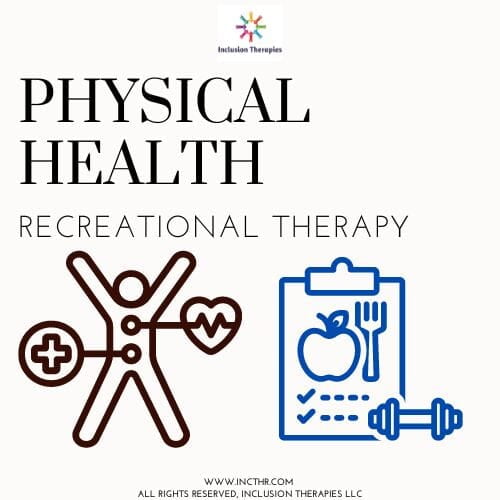
"Positive physical health habits can help decrease your stress, lower your risk of disease, and increase your energy."
-National Institutes of Health, Your Healthiest Self, Physical Wellness Toolkit
"Think of you and your overall well-being as a three-legged stool. The seat represents you and the legs represent your physical, mental and emotional health.
- Physical health is the general well-being of your body: sleeping 7-9 hours each night, eating balanced meals and snacks and being active.
- Mental health and emotional health can be a little tricky to tell apart but think of them as a tag team. Mental health refers to your ability to process information.
- Emotional health refers to your ability to express feelings that are based upon the information you have processed.
We need to attend to all three legs equally in order to ensure we are properly supported. If you neglect one area, imagine cutting an inch off of one of the legs. You’ll still be upright, but it will be uncomfortable and more difficult to support."
"Adults aged 18 to 64 who have been identified as being in poor physical health typically exhibit chronic health conditions such as diabetes, cardiovascular disease, heart disease, being overweight, or combinations of these conditions;"
- Carter Roeber, Ph.D., Chandler McClellan, Ph.D., and Albert Woodward, Ph.D., M.B.A., Adults in Poor Physical Health Reporting Behavioral Health Conditions Have Higher Health Costs, The Substance Abuse and Mental Health Services Administration (SAMHSA), agency within the U.S. Department of Health and Human Services
Recreational Therapy specializes in Physical Health
How is your Physical Health?
We are here to serve as your Recreational Therapy provider on your journey towards optimal Physical Health.
"The purpose of the RT process is to improve or maintain physical, cognitive, social, emotional and spiritual functioning in order to facilitate full participation in life."
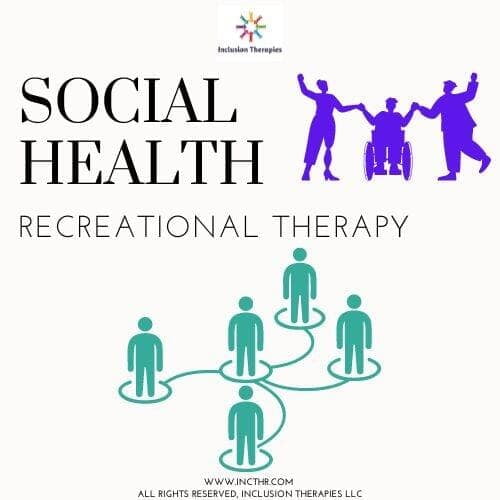
"Social well-being is our ability to effectively communicate with others, develop and maintain positive relationships, and create a community of support around ourselves."
"From the time you’re born, your relationships help you learn to navigate the world. You learn how to interact with others, express yourself, conduct everyday health habits, and be a part of different communities from those around you. Positive social habits can help you build support systems and stay healthier mentally and physically."
- National Institutes of Health, Your Healthiest Self, Social Wellness Toolkit
In child development, "Social health reflects a child’s developing ability to form close, secure relationships with other familiar people in their lives such as parents, relatives and other nurturing caregivers.[...]
Emotional development is closely tied to social development. It refers to the expression of a child’s feelings about herself, others, and the situations she will face in the world around her as well as gaining control of her bodily functions, learning to focus, and pay attention in the context of nurturing support by familiar caregivers[.]"
- Georgetown University Center for Child and Human Development
"People with strong social relationships have fewer health problems, are happier, and have increased longevity, researchers found.
People who have satisfying social connections with family, friends, and acquaintances are found to experience benefits just as important as those that come with a good night’s rest, a healthy diet, and a smoke-free environment[.]
Researchers are exploring how biological and behavioral factors play into the benefits of social interaction. For example, caring behaviors are found to release stress-reducing hormones, which can affect the immune system, coronary arteries, gastrointestinal function, and insulin regulation.
But the quality of the relationships matter. In one study, disappointing and negative interactions with family and friends are tied to poorer health, and other research indicated that couples in marital turmoil experience signs of reduced immunity.
A lack of connections also is tied to depression, cognitive decline, and a mortality risk greater than obesity and physical inactivity. One study suggests that the absence of strong relationships increases the risk of premature death from all causes by 50 percent."
"Social relationships—both quantity and quality—affect mental health, health behavior, physical health, and mortality risk.[...](1) social relationships have significant effects on health; (2) social relationships affect health through behavioral, psychosocial, and physiological pathways; (3) relationships have costs and benefits for health; (4) relationships shape health outcomes throughout the life course and have a cumulative impact on health over time[.]"
- Umberson D, Montez JK. Social relationships and health: a flashpoint for health policy. J Health Soc Behav. 2010;51 Suppl(Suppl):S54-66. doi: 10.1177/0022146510383501. PMID: 20943583; PMCID: PMC3150158.
Recreational Therapy specializes in Social Health
How is your Social Health?
We are here to serve as your Recreational Therapy provider on your journey towards optimal Social Health.
FAQ:
Optimal Health
"Most people are interested in achieving optimal health; however, the medical field has been criticized for disproportionately focusing on the elimination of disease rather than the promotion of health in recent years[.]"
- Bart R, Ishak WW, Ganjian S, Jaffer KY, Abdelmesseh M, Hanna S, Gohar Y, Azar G, Vanle B, Dang J, Danovitch I. The Assessment and Measurement of Wellness in the Clinical Medical Setting: A Systematic Review. Innov Clin Neurosci. 2018 Oct 1;15(9-10):14-23. PMID: 30588362; PMCID: PMC6292717."
"Optimal health is a holistic focus with the aim of attaining the best possible health outcomes by promoting healthier behaviors and not merely the absence of disease[.]"
- Office of Population Affairs (OPA), in the Office of the Assistant Secretary for Health, U.S. Department of Health and Human Services
"Recreational therapists plan, direct, and coordinate recreation-based medical treatment programs to help maintain or improve patients’ physical, social, and emotional well-being[,] for people with disabilities, injuries, or illnesses."
1. Optimal Health is our goal.
2. Recreational Therapy uses recreation-based medical treatment for improvement or maintenance of Emotional, Physical and Social Health.
3. Wellness is the path (or process) to reach the goal ("the active process of becoming aware of and making choices toward a more successful existence").
Our Recreational Therapists treat based on the Flourishing Through Leisure Model by focusing on five domains (or dimensions) of well-being.
The domains are all included as the basis for our originally designed Lifestyle Foundation Program.
Emotional Health is treated by the Emotional and Cognitive Domains, Physical Health is treated by the Physical Domain, and Social Health is treated by the Social and Spiritual Domains.
The five domains are:
1) Psychological/emotional - Psychological and emotional strengths help us perceive the world around us, and feel and regulate a range of emotions.
2) Cognitive - Cognitive strengths are those that help us think and learn.
3) Social - Social strengths are those that help us relate to others and belong to valued social groups.
4) Physical - Physical strengths are those that help the participant “act” and “do” in their daily life with no barriers.
5) Spiritual - Spirituality is defined as having strong and coherent beliefs about the higher purpose and meaning of life (Seligman, 2002).
Recreational Therapy is as different from recreation (fun leisure time) as traditional talk therapy is different from talking.
Recreation is having fun.
Recreational Therapy is an allied health profession in which a Recreational Therapist uses activities to treat client's health and wellness.
We encourage everyone to seek rehabilitation and wellness services with the Recreational Therapy (RT) practice of their choice.
If our service model (monthly membership required, services online or in-person at our Lake Travis center, etc.) fits your needs; we would appreciate the opportunity to serve as your outpatient RT provider.
We invest in our facilities, activities, technology, and continuing education. Our providers carry professional liability insurance and we strive to adhere to best practices at all times.
The issue is if the insurer accepts us (and will pay for our services).
To ensure we are able to afford to offer services, we have a monthly membership program.
Yes, "recreational therapy can complement PT and OT treatment goals."
Please Click Here to Access an Authorization To Disclose Protected Health Information (between medical providers).
- Add minor children under 18 for an additional $49 per month per child (to share one membership together).
- Add adults over 18 for an additional $99 per month per adult (to share one membership together).
All New Members are Enrolled in our Lifestyle Foundation Program
The program is 2-6 months (based on client goals and plan) and is paid via monthly membership subscription.
Members may pause or cancel membership subscription at any time
(cancellation effective at the conclusion of their current prepaid month).
"Health care extends beyond pills and medical devices."
- Baker, D. L., & Dye, C. (2017). Prescribing Experience: Discussion of Recreational Therapy as Health Care. Journal of Disability & Religion, 21(3), 296–318. https://doi.org/10.1080/23312521.2017.1326875
